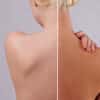Key Points
-
Postmenopausal women are incredibly vulnerable to losing bone density and developing osteoporosis.
-
Calcium and vitamin D work together to strengthen your bones.
-
A balanced diet and routine exercise defend your bones from damage.
-
Restrictive diets may make it harder to build healthy bones.
You've likely heard people talk about "needing a backbone" to accomplish a goal or to stand up for what's right. However, when it comes to living a healthy, fully active lifestyle, you need more than backbone — you need optimal bone strength throughout your body, with each bone working in sync to support overall well-being.
Bone Health
No one should take bone health for granted, especially aging women. Everyone loses bone density with time. However, women start losing density earlier and lose it significantly faster than men. Moreover, postmenopausal women are especially vulnerable to bone density loss and osteoporosis. Women develop osteoporosis at a rate four times higher than men.
Fortunately, there are simple yet effective steps you can take to maintain strong, healthy bones throughout life. This article explores six valuable tips for prioritizing healthy bones and bone strength.
Calcium: The Stuff of Healthy Bones
You've probably heard it since you were a toddler: You need to drink plenty of milk to grow strong and have healthy bones. This long-standing advice comes from the fact that milk is rich in calcium, the primary mineral component of all human bones. Calcium makes milk a reliable dietary choice for promoting bone health.
Other Sources of Calcium
Besides drinking more milk, you can add other calcium-rich foods and beverages. These include other dairy products like cheese and yogurt and leafy green vegetables like kale, spinach, and broccoli, which are also calcium-rich.
Fortified cereals and juices are another excellent option for consuming extra calcium. The average adult woman needs around 1,000 mg of calcium per day, increasing to about 1,200 mg per day after age 50.
For breakfast, try a delicious spinach and feta omelet, or indulge in a Greek yogurt parfait with fruits and nuts as a healthy dessert.
Vitamin D to Maximize Absorption
Vitamin D is critical for proper calcium absorption. One study found that calcium with vitamin D supplementation reduced the risk of hip fractures in postmenopausal women by 30 percent. Calcium and vitamin D work hand-in-hand, so you'll want to be as mindful about getting enough vitamin D as you are about monitoring your calcium intake.
Muscle Strength and Bone Health
Vitamin D's benefits go beyond enhanced calcium absorption. This essential vitamin also plays a role in maintaining healthy muscle function. Harvard Health Publishing notes, "Having a low level of vitamin D greatly increases a person's risk of age-related loss of muscle strength (known as dynapenia), a major risk factor for falls."
So, maintaining proper muscle strength alongside healthy bones creates an added layer of protection as you age.
Get More Vitamin D
Spending time outdoors in the sun is one way to get more calcium into your body. Exposing your skin to sunlight stimulates the natural generation of vitamin D. If you choose this method, aim to spend 10-15 minutes each day, preferably in the morning or late afternoon when the UV exposure is lower.
Dietary vitamin D sources include fatty fish (salmon, mackerel, or tuna), egg yolks, and fortified dairy products. If necessary, consider vitamin D supplements after consulting with your healthcare provider.
Consider a tasty salmon salad with a side of grilled portobello mushrooms for dinner. Blend a vitamin D-packed smoothie with spinach, mango, and Greek yogurt for a refreshing treat.
Remain Active Each Day
Most people associate exercise with good cardiovascular health and muscle strength. However, while exercise promotes cardio health, muscle strength, and endurance, its role in bone health often gets overlooked. Regular exercise promotes bone density and strength, while a lack of physical activity contributes to bone loss.
If you spend all day seated at work behind a computer screen or on the couch watching TV, you're losing bone density!
Weight-Bearing Exercise and Bone Health
Regular weight-bearing exercises help build and maintain strong bones by increasing bone mineral density among postmenopausal women. This effect reduces the risk of fractures for all women, but older women must safeguard their bones. So lace up those sneakers and get moving! Your bones will thank you!
Exercise Ideas for Strong Bones
For optimal bone health, incorporate activities that involve impact and resistance, such as walking, jogging, dancing, weightlifting, and hiking. Aim for at least 150 minutes of moderate-intensity aerobic exercise each week and two or more days of strength training targeting major muscle groups. For an added challenge, try walking or jogging at an incline!
Join a dance class, and sway to your favorite tunes while boosting bone health. Alternatively, challenge yourself with bodyweight exercises like squats, lunges, and push-ups at home. Don't forget to consult your doctor and a fitness professional before beginning any new exercise routine.
Eat a Healthy, Well-Balanced Diet
A healthy and well-balanced diet is essential for overall bone health. You should strive to consume a variety of nutrient-rich foods, including lean proteins (chicken, fish, and legumes), whole grains (quinoa, brown rice, and whole-wheat bread), fruits (oranges, strawberries, and bananas), and vegetables (broccoli, cauliflower, and kale).
Such variety will ensure you consume other vitamins and minerals necessary for bone health. These include magnesium, potassium, and vitamin K.
Vitamin K and Bone Health
Sufficient vitamin K intake increases bone mineral density in women. You can get vitamin K from foods like leafy greens and certain vegetables, so load up on those greens and nourish your bones from the inside out!
Prepare a nutrient-packed salad with grilled chicken, avocado, and mixed greens, drizzled with a lemon-tahini dressing. Enjoy sliced cucumbers with hummus for a satisfying snack with extra bone-loving nutrients.
Avoid Excessive Dieting for Healthier Bones
Nutrition is crucial for bone health, and severe dieting can jeopardize density. Studies indicate that women with lower calorie intakes show reduced bone mineral density, increasing the risk of osteoporosis.
Why Low-Calorie Diets Are Bad for Bone Health
Extreme low-calorie diets can lead to nutrient deficiencies, depriving your bones of critical vitamins and minerals and losing density. Crash diets are notorious for stripping your body of essential nutrients, which can be bad news for more than just bone health.
Any overly restrictive eating pattern can deprive your body of essential nutrients, so be careful about changes to your habits. You should instead focus on adopting a balanced and sustainable approach to nutrition and diet.
Listen to your body's hunger and fullness cues, and nourish it with wholesome, nutrient-dense foods. In other words, prioritize a well-rounded diet over quick fixes for long-lasting bone health!
Whip up a nourishing quinoa and vegetable stir-fry for a delicious lunch, or savor a hearty vegetable and bean soup for dinner. Don't forget to treat yourself to a dark chocolate-covered banana for dessert — after all, a well-balanced diet includes occasional treats too!
Maintain a Healthy Weight
Maintaining a healthy weight reduces the risk of bone fractures, particularly in older women. Being underweight or overweight can negatively impact bone health, so you should strive for a healthy weight within a specific range appropriate for your body type and age.
A balanced diet and regular exercise can help you achieve and maintain your ideal weight. Being overweight or underweight can contribute to bone density loss and poor bone health.
Consult With a Healthcare Professional
It's always a good idea to consult your doctor, dietitian, or other healthcare professional to determine your ideal weight. They'll help you develop a personalized plan tailored to your needs, health status, and bone health. You can reach your goals with the right diet, proper exercise, and regular consultation with your healthcare professional.
Consequently, for men or women struggling with unmanageable obesity or excess weight, the FDA has approved a handful of novel weight loss drugs called GLP-1 agonists.
Intriguingly, the diabetes drug Mounjaro (tirzepatide) is close to receiving approval as a GLP-1 agonist for weight loss either later in 2023 or early 2024. Research into the drug for weight loss has shown it's more effective than any other GLP-1 agonist for treating obesity.
Healthy Bones, Healthy Life
These six tips will help you prioritize and maintain excellent bone health when adequately incorporated into a healthy lifestyle. Remember that, like most other issues related to your health, maintaining strong bones requires some work and thoughtful consideration of your choices and routines.
Protecting your bones is worth the effort — consider it an investment in your overall health and well-being. Healthy bones are an essential part of remaining active throughout your life. If you're not already considering ways to maintain and improve your bone health, talk with your doctor, and start implementing these tips to enjoy the benefits of strong and healthy bones for years. Keep shining brightly through optimal bone health!
From healthy bones and radiant skin to procedures to fight against Father Time and exercise tips, get the information you need for a healthier lifestyle at Age Defying.




